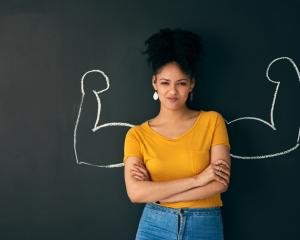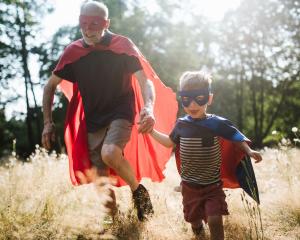
Kindness has been shown to increase life satisfaction, boost mood, enhance feelings of acceptance and trust, increase longevity in the older population, raise levels of self-esteem, improve the functioning of our immune system and help us feel generally happier.
Simply put, kindness boosts wellbeing, interestingly, in both the receiver and the giver. Being kind and receiving kindness ignites the brain’s reward systems, increasing levels of oxytocin and serotonin — the feel-good neurotransmitters. These two neurotransmitters are vital for promoting social connection, trust and feelings of belonging, highly important aspects of human survival.
When feel-good neurotransmitters are released, the giver feels good and is therefore more inclined to be kind again. The receiver, likewise, releases oxytocin and serotonin and feels accepted and cared about. As philosopher Eric Hoffer said: ‘‘We are made kind by being kind.’’
If that’s the case, then kindness is something we learn by doing, not just by thinking about it.
Being kind strengthens our connections with others. It builds trust and support, and a sense of co-operation that builds wellbeing not just for individuals, but for society in general. It’s not all about chasing individual success — our communities and society flourish when people look out for each other.
Kindness can be as simple as a smile, a thank-you or a word of encouragement. It’s a way of connecting, even if only for a brief moment, with those we pass in our daily lives. It doesn’t have to cost anything or take much time — what’s important is that it’s an act of genuine care and thoughtfulness for another person.
Kind acts can be spur-of-the-moment — for example, we might give up our seat on the bus or pick up and return someone’s glove when they drop it. Opportunities to be kind pop up all over the place — such as handing on a newspaper we’ve finished reading or by letting someone with only a few items to buy go in front of you at the supermarket.
Acts of kindness can also be planned in advance: you can plan to do something for a friend, neighbour or loved one just because you want to spread some joy. There doesn’t have to be a reason and you may never know what it really meant to the person. There are unlimited ways to be kind to others — you only need to keep your eyes open and pay attention to those around you to start seeing opportunities to help.
Here are some ideas for being kind. —
START WITH YOURSELF
This is not about being selfish, it’s about looking after yourself. We can be remarkably hard on ourselves, our internal dialogue or self-talk much harsher towards ourselves than others. Why would we run an internal dialogue that does the opposite of releasing wellbeing-enhancing neurotransmitters? That seems to be a bit self-sabotaging. It might naturally be easier to be kinder towards others rather than ourselves so this might take a little intention and effort, but the potential rewards are huge.
BE PREPARED
Plan for kindness: think about what you might do to spread some kindness — you’ll be more likely to spot opportunities when they come up. Make yourself a list of small actions you could take, e.g., smile at people you meet, give a compliment, make a cup of tea for a colleague. Think about the people you know and others you might have a brief or casual interaction with during the day. What could you do today or tomorrow?
HAVE A KINDNESS DAY
On a particular day, perhaps once a week, try to perform a number of different acts of kindness for different people. Afterwards, think: how did you feel after you did each act? How do you feel at the end of the day?
DO IT TOGETHER
Try to think about kind things you could do with friends, family, neighbours or as a work group. You can swap ideas and support each other. Doing new things together also helps build connections, which also increases happiness, so it’s a win all round. If you’ve got children, get them thinking about what they can do too,
e.g., writing thank-you notes for birthday gifts received or taking an elderly neighbour’s paper to their door.
Perhaps a group of your friends could dig someone’s garden, or offer to babysit to give someone else a break. Maybe your work group could get together to tidy up rubbish, or raise money for a cause. The possibilities are numerous, and they don’t have to cost a fortune, in fact, many won’t cost a thing.
Novelist Henry James wrote: ‘‘Three things in human life are important. The first is to be kind; the second is to be kind; and the third is to be kind.’’
Go on, try a little kindness!
Jan Aitken is a Dunedin-based life coach.
For more go to www.fitforlifecoaches.co.nz.
Twitter:@jan-aitken












